Introduction: In this article, Melissa Davenport Berry writes about how author Ron Guilmette researched old newspaper articles to tell the story of the nation’s first state police department. Melissa is a genealogist who has a blog, AnceStory Archives, and a Facebook group, New England Family Genealogy and History.
In 2013, the newly established Massachusetts State Police Museum and Learning Center in South Grafton, Massachusetts, began preparing to celebrate the 150th anniversary of the first and oldest state police department in the nation, founded immediately after the Civil War in May 1865. Many of those first constables were Civil War veterans.
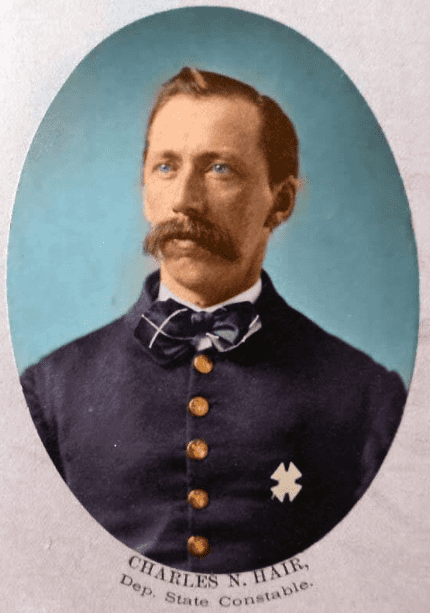
The Department of State Police headquarters had accumulated volumes of photos and records of its officers from 1921 to the present, but records prior to that year were scarce – especially for the department’s first decade. The question of where to find more on the department and the men who served was answered via GenealogyBank.
Ron Guilmette, president of the museum, described the hunt for the records:
“Bingo!” he exclaimed. “We searched GenealogyBank and one by one, we were able to dig into the lives of these first constables. We were able to research their lives, marriages, births of children, and deaths, as well as the arrests they made and the cases they investigated. We found thousands of newspaper articles relating to the officers who served from 1865 to 1875.”
A badge found on eBay was suspected to be the first badge worn by a state police constable, but no one could verify its authenticity because no one on the State Police force had ever seen one. Sure enough, an 1867 newspaper article popped up on a GenealogyBank search and verified that it was in fact an original state police constable badge.
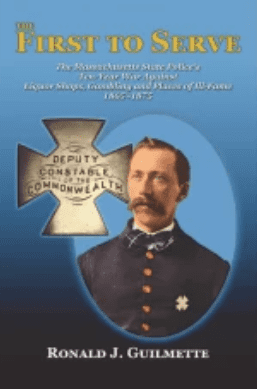
From this quest Guilmette published The First to Serve in 2018. The book chronicles the lives and Civil War service of these first state police officers, and describes the first decade of the Massachusetts State Police and the hardships and political turmoil the first constables faced enforcing the first alcohol prohibition in the nation – for three dollars a day!
This book furnishes genealogy, military records, and photographs. You may find your ancestors policing vices or committing them! Guilmette dishes out the raids and arrests made by the first of Massachusetts’ finest. And thanks to GenealogyBank, the reader has an in-depth account of the scandalous speakeasys, dice joints, and bawdy houses the police uncovered.
The constable gracing the cover of The First to Serve is Charles Nelson Hair (1831-1890), son of Horatio Nelson Hair and Susan Adams. Hair, a veteran of the Civil War, served as corporal in Co. C, 51st regiment and a first lieutenant in 4th Massachusetts heavy artillery.
The Boston Traveler published the notice when Hair was made Deputy Constable for Worcester County, Massachusetts.
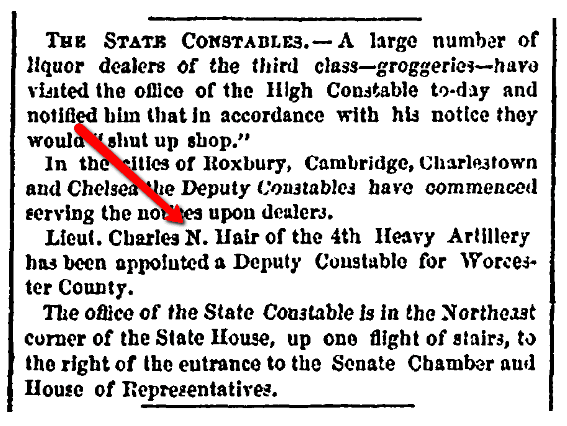
Here is one of the newspaper articles from GenealogyBank that Guilmette used in his book, describing two busts made by Constable Hair and other law officials upon “dens of vice.” The article concludes:
“We are glad that our authorities are active in breaking up these haunts of pol[l]ution, and we hope it is but the beginning of a thorough eradication of the greatest evil that exists in our city.”
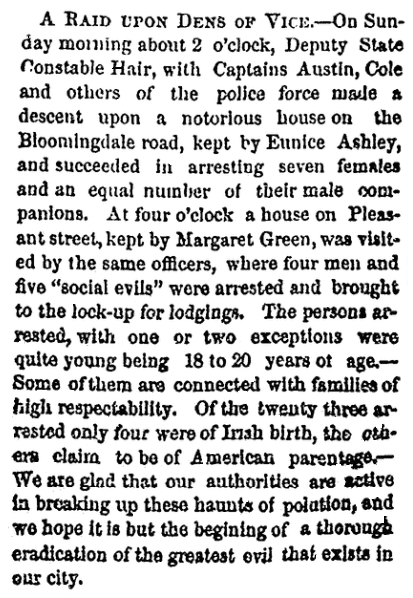
Constable Hair was a busy fellow in May of 1867, as this detailed account of his activities, published by the National Aegis, reports.
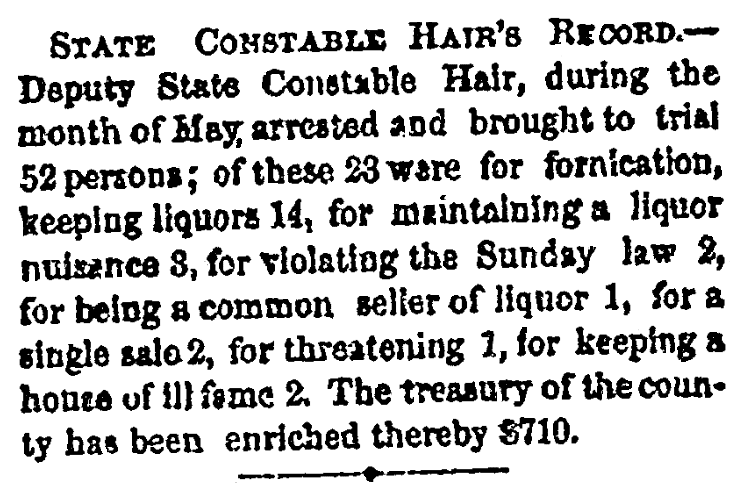
Guilmette continued his research after the Sesquicentennial celebration and published two more books. Once again GenealogyBank proved to be the most auspicious tool in finding more information on the constables who served.
Note: An online collection of newspapers, such as GenealogyBank’s Historical Newspaper Archives, is not only a great way to learn about the lives of your ancestors – the old newspaper articles also help you understand American history and the times your ancestors lived in, and the news they talked about and read in their local papers. Did any of your ancestors serve in one of the nation’s first police departments? Please share your stories with us in the comments section.
For More Information:
Visit the Massachusetts State Police Museum and Learning Center and the Worcester Historical Museum websites.

Melissa. Your articles are wonderful!
Thanks Don